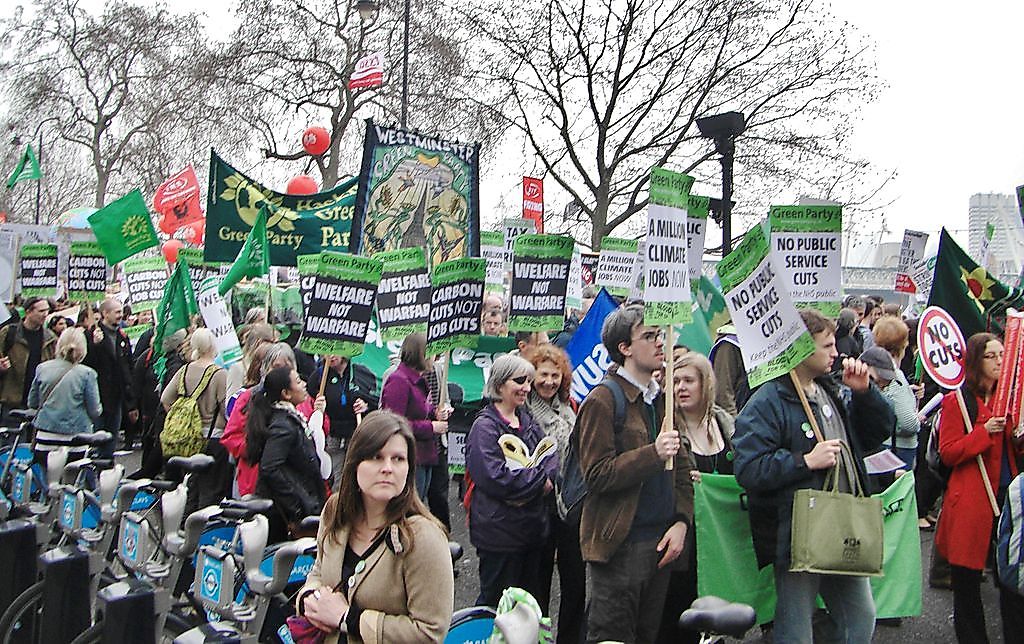

Also uncertain are the greens’ ability to stick with nonviolent principles and their willingness to form alliances with the far right or far left. However, questions persist over the impact greens will have on climate policy. Some analysts argue that they are uniquely positioned to win disaffected voters away from the far right-especially as, in the case of Germany’s greens, they have in many areas tacked to the center, supporting international institutions such as the European Union and the North Atlantic Treaty Organization (NATO) military alliance. Their outsider status means that they have been able to benefit from dissatisfaction with the current system while their idiosyncratic ideology attracts supporters from across the traditional left-right spectrum. In the midst of this turbulence, greens are further scrambling the political calculus. Experts say a succession of shocks-including the global economic crisis that began in 2008, a spate of high-profile terrorist attacks, and a wave of migration from the Middle East and North Africa beginning in 2015-stoked voters’ defections from centrist parties to alternatives on the left and right. In Europe, mainstream parties have been losing support for years. Meanwhile, some data suggests that the economic and social turmoil of the COVID-19 pandemic-and the perception of bumbling responses in leading democracies-has further undermined public faith in authorities. According to Freedom House, a pro-democracy watchdog group based in Washington, DC, the world is fifteen years into a “ democratic recession.” For CFR Senior Fellow Yascha Mounk, rising populism is fueled by declining living standards and dysfunctional institutions. Some observers say the health of democratic systems around the world is on the decline.


With greens poised to play the role of kingmaker in some of the world’s most influential countries, their choices could increasingly shape public policy and the future of democracy. There are also strains of “ green conservatism,” which see environmentalism through a patriotic lens and press for market-oriented solutions. Most greens see themselves on the economic and social left, but their focus on decentralization and local solutions separates them from many traditional socialist parties. Green platforms generally include opposition to war and weapons industries, especially nuclear weapons skepticism about global trade arrangements and consumerist industrial society a preference for decentralized decision-making and localism and a commitment to social justice, racial and economic equality, and women’s empowerment.Īs British green party activist Derek Wall argues in his book on green politics, the movement has important differences from both the left and right.

According to the Global Greens network, there are close to eighty full-fledged green parties. Their environmental concerns began with opposition to nuclear power but have expanded to include climate change, pollution, and industrial agriculture. Green political parties reflect a broader social movement seeking to reorient civilization in what supporters say are more sustainable and humane directions. Yet the movement remains divided over issues such as nuclear energy, military force, foreign policy, and cooperation with right-wing and populist parties. In Germany, the world’s fourth-largest economy, they hold some of the government’s highest positions, including the foreign ministry, and have been at the forefront of pressing for stronger Western support for Ukraine in the wake of Russia’s invasion. With climate change a pressing issue and traditional parties losing support to various alternatives, greens are positioned to play a greater role than ever. Why Putin’s War With Ukraine Is a Miscalculation


 0 kommentar(er)
0 kommentar(er)
